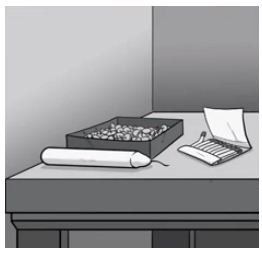Creativity
| Perception
| Thinking
| Creative Power
| Creative Relationships
| Creative Self
| Reviving Our Creative Self
Here’s a teaser. You have a candle, a hammer, and a box of drawing pins/ thumb tacks. Now, using only these items, think of a way of attaching the candle to a wall.

This same test of creative thinking was set in an experiment conducted by psychologist Sam Glucksberg, in 1962. But he added a twist: some of the subjects were offered a cash reward for solving the puzzle more quickly than average. The rest had to make do with just their own, innate motivation.
Surprisingly, perhaps, the cash-propelled group - powered, we might assume, by motivational “rocket fuel” - performed more slowly than the others. The quickest puzzle solvers, in other words, were those free from any nudge or shove.
This is the issue: external pressure can switch us over to the stressed, controlled kind of motivation, as can weaken our performance. Contrary to what we might expect, stress can slow us down through its blunderbuss use of compulsive desire
carrot and fear
stick (such as makes us desperate to win, or scared of bearing the “shame of failure”).
Meddlesome stress makes our thinking as dull as train tracks pointed dead ahead, and denies us the option to wander off-piste and see things afresh.
